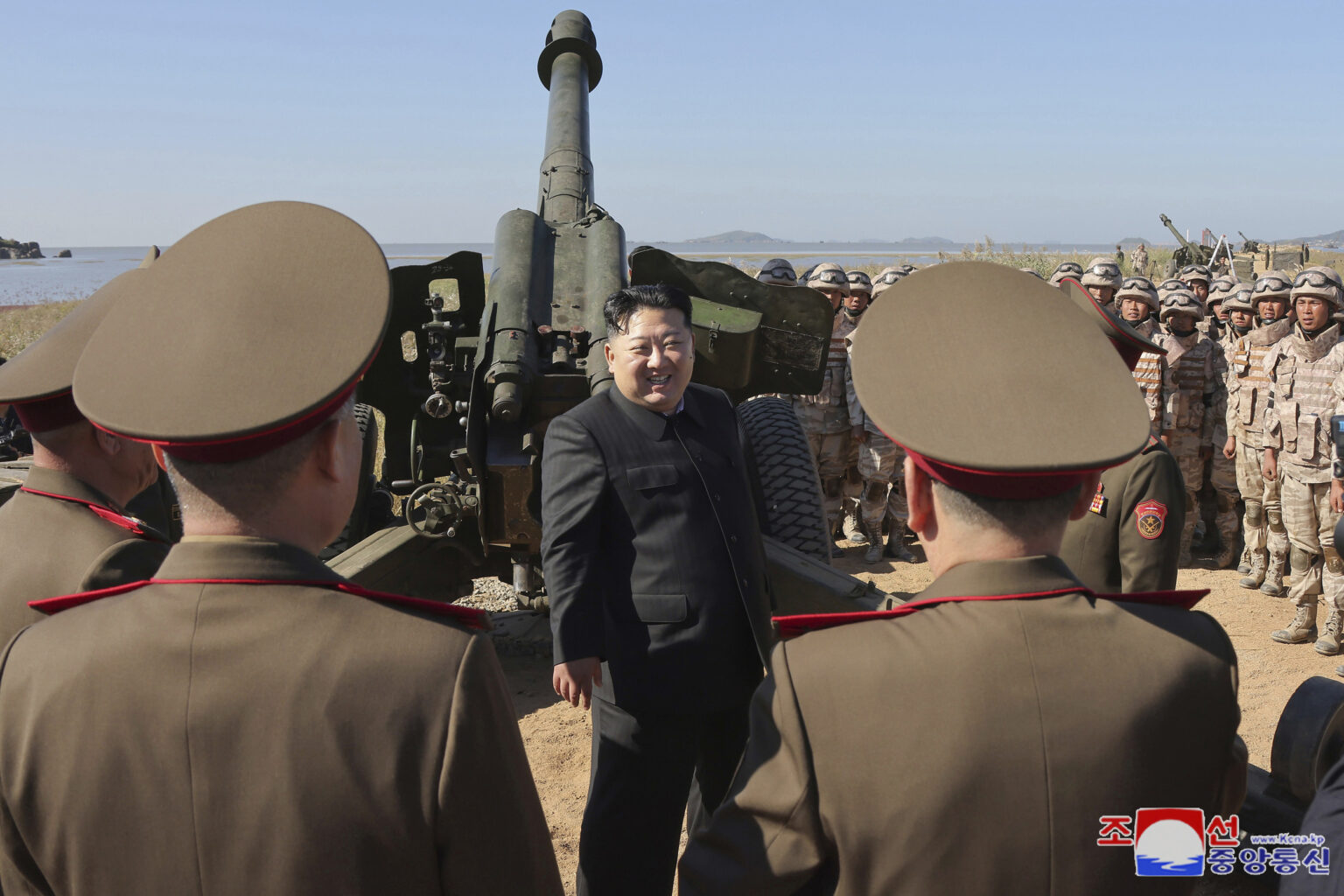Kim Jong Un has warned that he wants North Korea to develop its “strategic deterrence” in the face of what he called the “ever-increasing threat” of America’s nuclear arsenal.
The message comes amid escalating tensions on the Korean Peninsula, with Kim accusing South Korea and the U.S. of provocation and reports of Russia using North Korean soldiers to fight its war in Ukraine—a claim denied by Pyongyang.
While visiting a strategic missile base on Wednesday, Kim said the U.S. nuclear arsenal poses “ever-increasing threats to the security environment of the Democratic People’s Republic of Korea.”
He then “stressed the need to further modernize and fortify the strategic missile bases,” the state’s official Korean Central News Agency (KCNA) reported.
Kim, his sister Kim Yo Jong and other military officials were reportedly at the base to inspect “important functions and capabilities of launch-related facilities in the missile bases.”
North Korea is subject to international sanctions for the intensification of its ballistic missile and nuclear arsenal development. It has never disclosed the number of nuclear warheads in its arsenal, but, in July, the Federation of American Scientists estimated that the country has enough fissile material to build up to 90 nuclear warheads.
A few weeks ago, Kim said North Korea would “without hesitation use all its attack capabilities against its enemies,” should they employ armed forces against the North.
“The use of nuclear weapons is not ruled out in this case,” he warned in a speech delivered at the Kim Jong Un University of National Defense on October 7.
Similarly, just days before this, Kim said North Korea would “use without hesitation all the striking forces in its possession, including nuclear weapons,” against South Korea.
This was in response to South Korean President Yoon Suk-yeol unveiling weapons intended to keep the North at bay.
“That day will be the end of the North Korean regime,” he had said at the time, adding: “The North Korean regime must abandon the delusion that nuclear weapons will protect them.”
Kim addressed this during a speech to “special operation troops” at an undisclosed training base, where he said, according to KCNA: “The puppet Yoon bragged about overwhelming counteraction of their military muscle at the doorstep of a state possessing nuclear weapons, and it was a great irony that caused misgivings about whether he is an abnormal man.”
Meanwhile, Both Ukraine and South Korea have said that thousands of North Korean troops are being trained to fight for Moscow in Ukraine, with around 1,500 already reportedly deployed there.
Ukraine’s Defense Intelligence Directorate said there were almost 11,000 North Korean infantry troops training in eastern Russia to fight in Ukraine.
The military intelligence agency’s Lieutenant General Kyrylo Budanov told The War Zone website on October 17 that these battalions will be ready to fight in Ukraine by November 1. But he added: “We don’t have the full picture right now.”
Hours before this, Ukrainian President Volodymyr Zelensky told reporters in Brussels that there were about 10,000 North Korean troops preparing to fight for Russia.
South Korea’s spy agency, the National Intelligence Service (NIS), also said that North Korea was planning to deploy between 10,000 and 12,000 troops to Russia, according to Yonhap.
The NIS believes Pyongyang transported special forces between October 8 and 13, with around 1,500 North Korean troops transported in the first phase.
A North Korean envoy to the United Nations denied these claims, calling them “groundless rumors” on Monday, South Korean news agency Yonhap reported, while the Russian Embassy in Seoul insisted in a Facebook post that its cooperation with North Korea was “within the framework of international law.”
U.S. Defense Secretary Loyd Austin said over the weekend that he could not confirm reports that North Korea had sent troops to Russia.
Sydney Seiler, a former national intelligence officer for North Korea at the National Intelligence Council, warned that what is happening on the Korean Peninsula could affect the U.S.
“Even though these tensions between North and South Korea do not seem to directly target the U.S. presidential elections, the United States now faces a new provocation environment on the peninsula,” he wrote in a piece for the Center for Strategic and International Studies.
He went on: “What was once seen as dangerous but ultimately containable North Korean coercive diplomacy could evolve into something more dangerous and fundamentally threatening to the status quo.
“Although higher-end provocation options may have been seen by Kim Jong Un as unnecessarily risky in the past, backed by a growing nuclear arsenal and support of Russia, Kim may feel more comfortable in taking chances. Overconfidence in his nuclear deterrent may lead Kim Jong Un to coercive actions not seen in the recent past.”
Newsweek has contacted the Permanent Mission of Democratic People’s Republic of Korea to the United Nations Office, and the U.S. Department of Defense via email, outside of normal working hours, for comment.
Read the full article here

